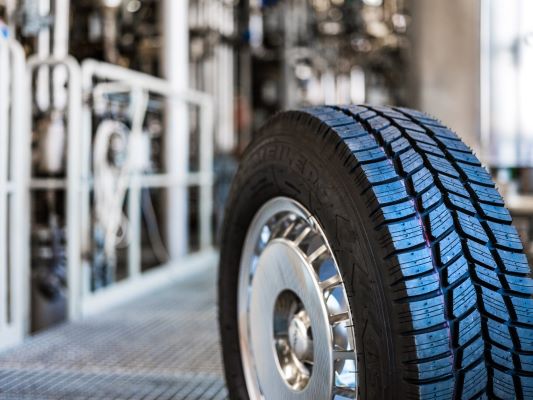
Fraunhofer Institute for Applied Polymer Research (IAPR) has launched a three year project to develop 'alternative, bio-based raw materials' for the production synthetic rubber. Starting in April, the €3.25 million project is funded by Fraunhofer and aims to enable "completely new types of rubber for car tires", the German institute announced 4th April.
The project, which has been dubbed as 'NaMoKau', aims to develop "sustainable biomonomers" for synthetic rubbers with application related adjustable viscoelastic properties. As well as its IAPR, project partners also include Fraunhofer units Microstructure of Materials and Systems (IMWS), Industrial Mathematics (ITWM) and Environmental, Safety and Energy Technology (UMSICHT).
"In the project, we are producing the rubber monomers butadiene, isoprene and dimethylbutadiene from bio-based alcohols", said Dr. Barbara Zeidler Fandrich from Fraunhofer UMSICHT. For the process to work, Zeidler Fandrich explained that it is "essential" to use a catalyst that is as active and as selective as possible.
For this purpose, she said the research team is developing "innovative materials" based on clay minerals. The production of sustainable dimethylbutadiene, in particular, is an outstanding feature of the project, the Fraunhofer statement continued.
The monomer, noted project manager Dr. Ulrich Wendler, has not been available "on a technical scale" to date and is, therefore, not used in rubber production. As part of the project, the polymer expert at the Fraunhofer IAP said the researchers will aim to make dimethylbutadiene accessible for rubber synthesis. Combined with butadiene and isoprene, they will then synthesize "novel polymer structures with unique mechanical and thermal properties".
"This will create completely new types of bio-based rubber with material properties that were previously impossible to achieve and can be adjusted extremely systematically", Wendler added. Furthermore, the research team will aim to improve the performance of tires through enhanced mechanical properties of the new rubber materials.
"Our aim is to develop new compounds for car treads with so far unprecedented property profiles based on the rubber types that we will be researching in the project", noted Professor Mario Beiner from the Fraunhofer IMWS.
The NaMoKau project follows an earlier cross institute project, wherein Fraunhofer researchers developed the "biomimetic synthetic rubber Bisyka".
The rubber produced in that project, stated Wendler, "even exceeds the outstanding abrasion properties of natural rubber". The team will use knowledge gained during the Bisyka project to advance the bio rubber research.
"While we developed a synthetic rubber with as little abrasion as possible in the BISYKA project, we are [now] addressing the ecological balance of synthetic rubber with NaMoKau", concluded Wendler.